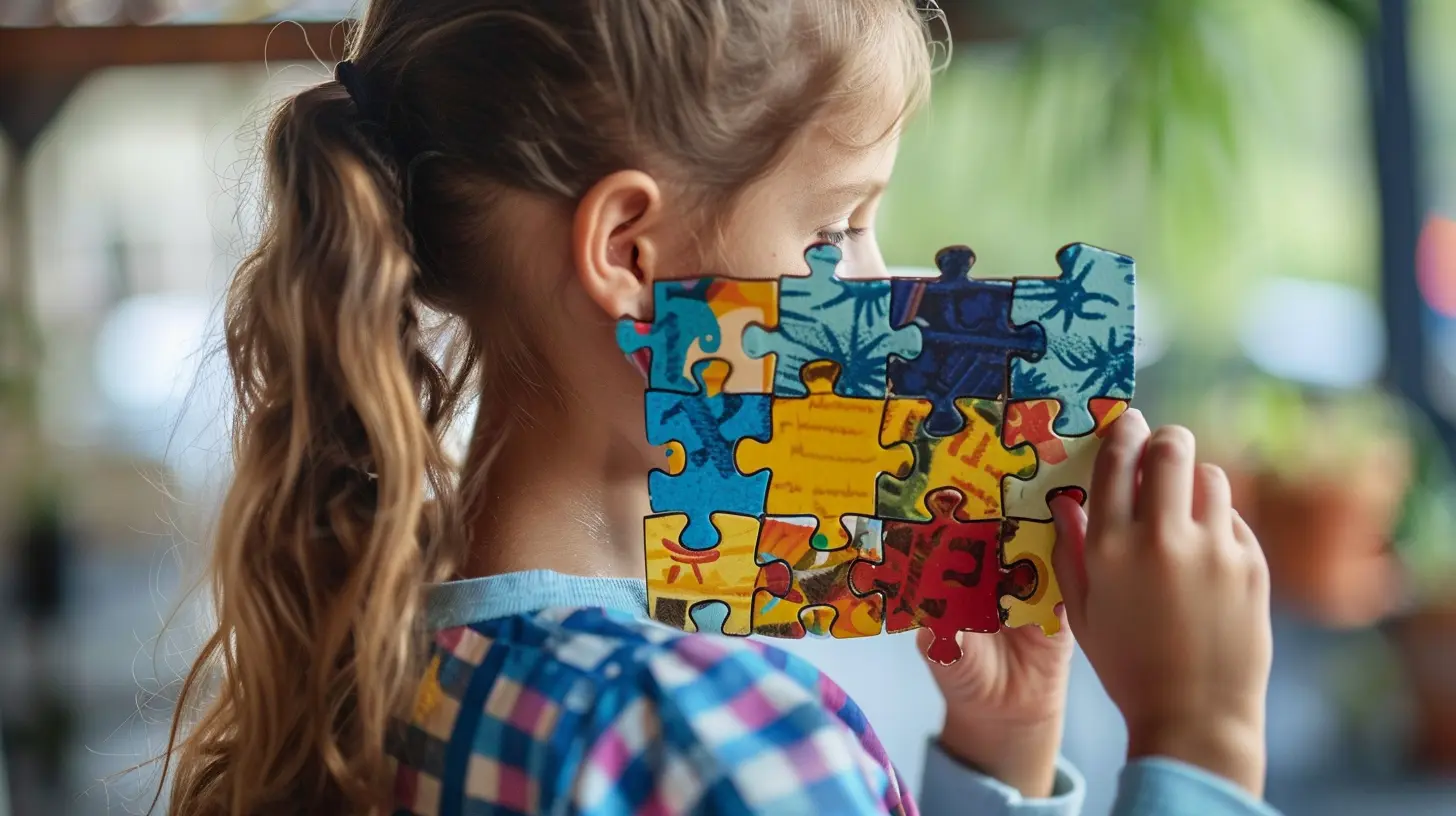Why Early Diagnosis of Learning Disabilities Can Change a Child’s Future
5 March 2025
Imagine this: You're a young child sitting in class, watching your classmates breeze through their assignments while you can't seem to grasp the basics. No matter how hard you try, the words on the page don't make sense, numbers look confusing, and you're beginning to feel like you’re falling behind. This scenario is, unfortunately, a reality for many children with learning disabilities who go undiagnosed for years. But what if there was a way to intervene early? What if catching these struggles early on could change the trajectory of a child’s entire future?
In this article, we’re diving deep into why early diagnosis of learning disabilities is critical, how it can dramatically shift a child's educational and emotional development, and what parents, teachers, and caregivers can do to support early intervention.

Understanding Learning Disabilities
Before we dive into the "why," let's quickly touch on the "what."A learning disability is a neurological disorder that affects the brain's ability to receive, process, store, and respond to information. In simple terms, a child with a learning disability may struggle in specific areas like reading, writing, or math, even though they have average or above-average intelligence.
Some common types of learning disabilities include:
- Dyslexia (difficulty with reading)
- Dysgraphia (difficulty with writing)
- Dyscalculia (difficulty with math)
- ADHD (Attention Deficit Hyperactivity Disorder, which can impact focus and organization)
These disabilities aren't about intelligence; they’re about how the brain processes information. And the good news? The earlier these are identified, the better the outcome for the child.

The Golden Window: Why Early Diagnosis Matters
So, why is early diagnosis so important? Can’t kids just "grow out of" their struggles?The short answer: No, they can’t. Learning disabilities don’t disappear with time. In fact, delaying diagnosis can lead to more significant challenges down the road, both academically and emotionally.
1. Maximizing Brain Plasticity
The brain is an incredible organ—especially in children. In the early years of life, the brain is highly plastic, meaning it's flexible and capable of forming new neural connections. This is why early diagnosis of learning disabilities is crucial. If we intervene early, we can take advantage of this brain plasticity and help children develop strategies and skills that can bypass or mitigate their specific challenges.Think of the brain like a young tree. In its early stages, it's easier to shape and guide. But once that tree grows, it becomes much harder to change its direction. Similarly, early intervention helps to "shape" the brain's learning pathways before they become more rigid.
2. Preventing Negative Emotional Impact
The emotional toll of undiagnosed learning disabilities can be significant. When a child struggles in school, they may internalize those difficulties as personal failures. They might think, "I'm not smart," or "Something is wrong with me." This can lead to low self-esteem, anxiety, and even depression.An early diagnosis provides clarity and understanding. Instead of seeing themselves as “dumb,” children can understand that they simply learn differently and that there are ways to help. It's not about fixing the child—it's about empowering them with the right tools.
3. Building a Support System Early On
When a child is diagnosed with a learning disability early, parents, teachers, and doctors can work together to create an effective support system. The earlier this system is in place, the quicker the child can get the resources they need.For example, schools can provide specialized education plans like Individualized Education Programs (IEPs) or 504 Plans, which are tailored to meet the child's unique needs. These plans might include extra time on tests, assistive technology, or one-on-one tutoring.
Without an early diagnosis, children often miss out on these critical supports, making their school experience more challenging than it needs to be.

The Domino Effect of Delayed Diagnosis
Now, let's flip the coin and look at what happens when learning disabilities go undiagnosed or diagnosed too late. Spoiler alert: It’s not pretty.1. Falling Behind Academically
If a child isn't diagnosed and supported early on, they are likely to fall further behind in school each year. Imagine trying to build a house without a strong foundation—it’s nearly impossible. In the same way, if a child doesn’t get the foundational skills they need, subjects like reading, writing, and math become increasingly difficult and overwhelming.By the time the problem is recognized, the child may be several grade levels behind, which can be incredibly demotivating and hard to catch up.
2. Behavioral Challenges
When kids struggle in school, it often shows up in their behavior. They may become frustrated, angry, or withdrawn. Some might act out, while others may try to avoid school altogether. It's not that they’re "bad" kids; they're just overwhelmed and unsure how to cope with their struggles.Over time, these behavioral challenges can spiral into more significant issues like skipping school, getting into trouble, or even dropping out altogether.
3. Long-Term Impact on Career and Life Success
Let’s think long-term for a second. If a child’s learning disability goes undiagnosed and untreated, it doesn’t just impact their schooling years—it can affect their entire future.Without the right support, these children may struggle to graduate from high school or pursue higher education, which in turn limits their career opportunities. Even in adulthood, they may continue to face challenges with tasks like managing finances, time management, or reading comprehension.
But here’s the thing: It doesn't have to be this way. With early diagnosis and intervention, children with learning disabilities can thrive academically, socially, and in their careers. Many successful individuals, from CEOs to artists, have learning disabilities and have used them to their advantage. All it takes is the right support.

What Parents and Teachers Can Do
So, how do we ensure children receive early diagnosis and support? It all starts with awareness and action.1. Know the Signs
The first step is recognizing the signs of learning disabilities. While every child is different, here are some common red flags:- Difficulty with reading or writing
- Trouble following instructions
- Struggling with numbers or math concepts
- Poor memory
- Difficulty staying focused or organized
- Avoidance of schoolwork or frustration with homework
If you notice any of these signs, it’s important to consult with your child’s teacher or a specialist for an evaluation.
2. Advocate for Your Child
As a parent, you are your child’s best advocate. If you suspect your child has a learning disability, don’t be afraid to push for testing and support. Schools often have resources available, but you may need to be persistent to ensure your child gets the help they need.3. Work with Specialists
Once a diagnosis is made, work with specialists like educational psychologists, speech therapists, or occupational therapists who can provide tailored interventions. These professionals can help your child develop strategies to work around their challenges and build on their strengths.4. Create a Positive Learning Environment at Home
Support your child’s learning at home by creating a positive and encouraging space. Celebrate their progress, no matter how small, and remind them that everyone learns differently. The goal is to build confidence and foster a love for learning, even if it looks different from their peers.The Future is Bright
Here’s the good news: With early diagnosis and the right support, children with learning disabilities can thrive. They can not only keep up with their peers, but they can excel in ways that highlight their unique strengths.It’s easy to feel overwhelmed or discouraged when you first learn your child has a learning disability. But remember, this diagnosis isn’t a limitation—it’s an opportunity. An opportunity to understand how your child learns, to empower them with the tools they need, and to set them on a path for success.
So, don’t wait. Early diagnosis can change everything.
all images in this post were generated using AI tools
Category:
Learning DisabilitiesAuthor:

Janet Conrad
Discussion
rate this article
8 comments
Faelan McMurtry
Let’s be real: waiting around for a ‘miracle’ isn’t a strategy. Early diagnosis isn’t just a label; it’s a lifeline! Ignoring signs doesn’t make them disappear—it only dims a child's future. Get proactive, people! The earlier we act, the brighter their possibilities!
April 1, 2025 at 3:07 AM

Janet Conrad
Absolutely! Early diagnosis empowers us to provide timely support, ensuring a brighter future for children with learning disabilities. Ignoring the signs hinders their potential—let’s act now!
Mary Benton
Thank you for this essential article. Early diagnosis truly transforms lives, empowering children to thrive and reach their full potential. Every child deserves that chance.
March 18, 2025 at 4:54 PM

Janet Conrad
Thank you for your thoughtful comment! I completely agree—early diagnosis is crucial for helping children unlock their potential.
Pierce Russell
This article highlights an essential perspective on early diagnosis! I'm intrigued by how timely interventions can empower children with learning disabilities. Can we explore more about effective support strategies?
March 17, 2025 at 5:07 PM

Janet Conrad
Thank you for your interest! We will definitely explore effective support strategies in future pieces. Stay tuned!
Benjamin McCray
Early diagnosis of learning disabilities acts as a crucial turning point in a child's educational journey. By identifying challenges early, we empower children with tailored support, fostering resilience and self-esteem. This proactive approach not only enhances academic success but also nurtures a positive self-image for lifelong growth and development.
March 12, 2025 at 5:32 PM

Janet Conrad
Thank you for highlighting the transformative impact of early diagnosis on children's educational journeys. Your insights into tailored support and its role in fostering resilience and self-esteem are invaluable!
Lulu Walker
Early diagnosis empowers intervention strategies, fostering hope and success for children's futures.
March 12, 2025 at 4:21 AM

Janet Conrad
Thank you for your insightful comment! Early diagnosis indeed plays a crucial role in paving the way for effective interventions and brighter futures for children.
Paula McVey
Early diagnosis empowers children, unlocking their potential and paving the way for success!
March 10, 2025 at 5:13 PM

Janet Conrad
Thank you! Early diagnosis truly is key to unlocking a child's full potential and fostering their success.
Jace McNaughton
Early diagnosis empowers children, unlocking their potential and paving the way for brighter, more fulfilling futures!
March 7, 2025 at 4:19 AM

Janet Conrad
Absolutely! Early diagnosis is crucial in supporting children's unique needs, enabling them to thrive and reach their full potential.
Finley Maddox
Early diagnosis empowers children with learning disabilities, paving the way for tailored support and success.
March 6, 2025 at 4:42 AM

Janet Conrad
Thank you for your insight! Early diagnosis is indeed crucial for providing the personalized support children need to thrive.





